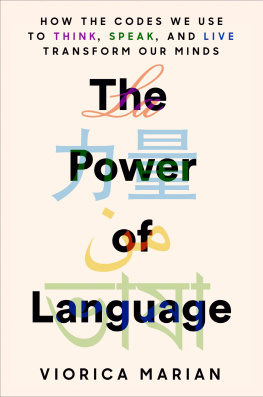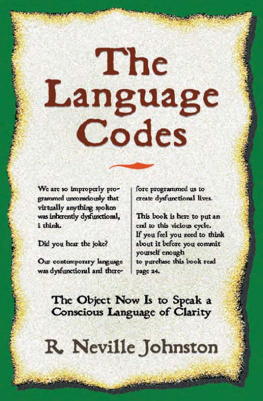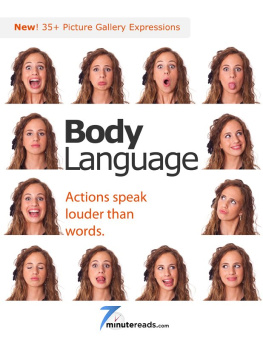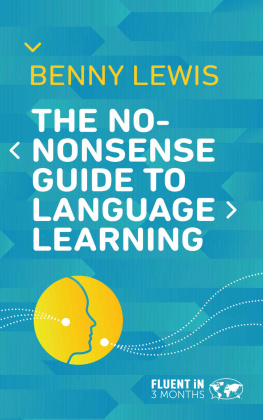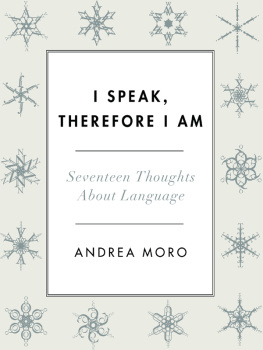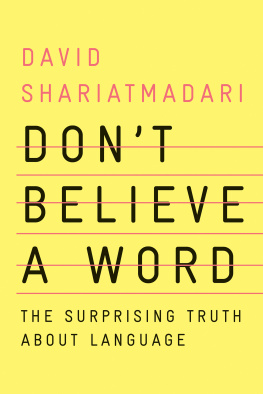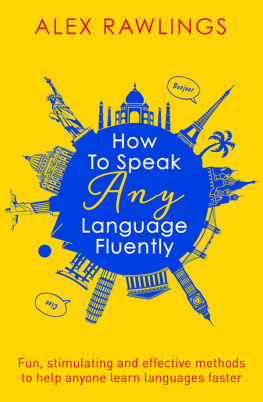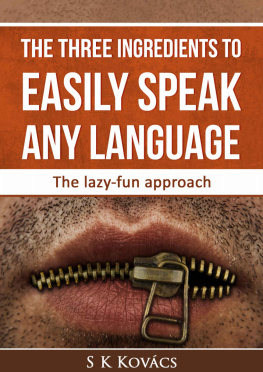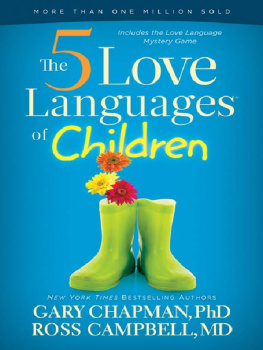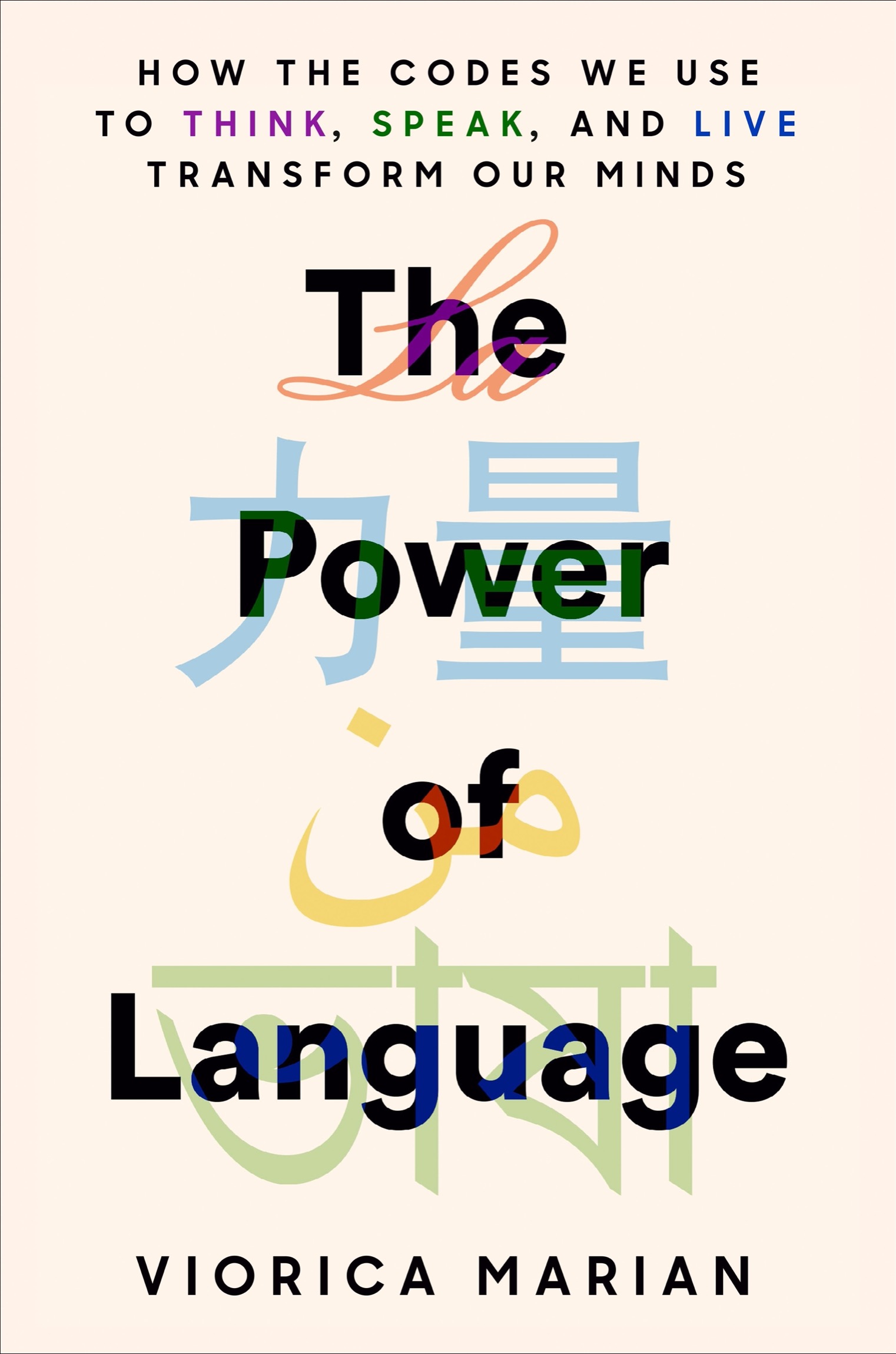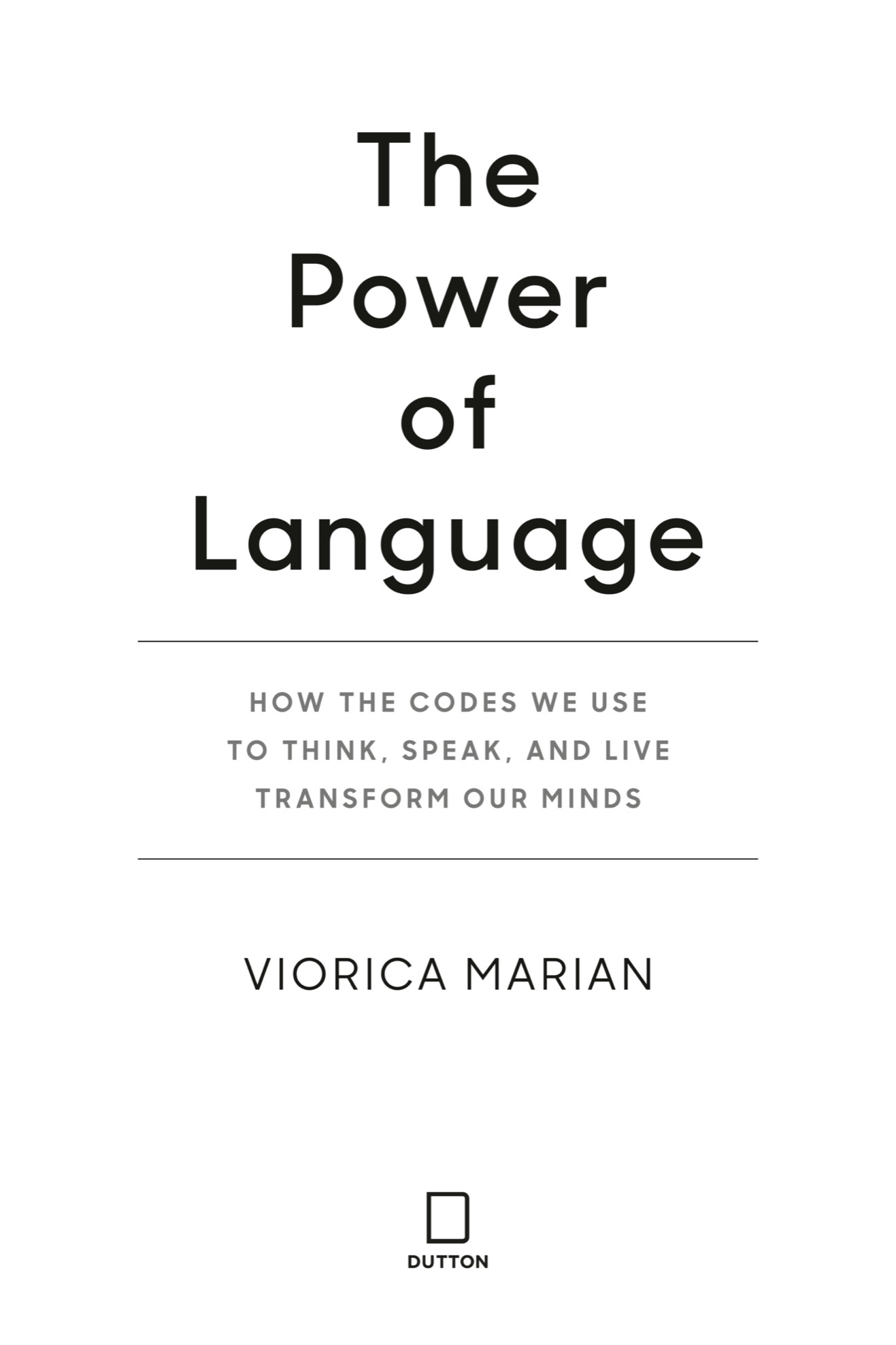
An imprint of Penguin Random House LLC
penguinrandomhouse.com

Copyright 2023 by Viorica Marian
Penguin Random House supports copyright. Copyright fuels creativity, encourages diverse voices, promotes free speech, and creates a vibrant culture. Thank you for buying an authorized edition of this book and for complying with copyright laws by not reproducing, scanning, or distributing any part of it in any form without permission. You are supporting writers and allowing Penguin Random House to continue to publish books for every reader.
DUTTON and the D colophon are registered trademarks of Penguin Random House LLC.
Permissions appear on and constitute an extension of the copyright page.
library of congress cataloging-in-publication data
Names: Marian, Viorica, author.
Title: The power of language: how the codes we use to think, speak, and live transform our minds / Viorica Marian.
Description: [New York, NY] : Dutton, [2023] | Includes bibliographical references and index.
Identifiers: LCCN 2022035014 | ISBN 9780593187074 (hardcover) | ISBN 9780593187081 (ebook)
Subjects: LCSH: Psycholinguistics. | Multilingualism.
Classification: LCC P37.M26 2023 | DDC 401/.9dc23/eng/20220917
LC record available at https://lccn.loc.gov/2022035014
Cover design by Vi-An Nguyen
book design by Tiffany Estreicher, adapted for ebook by Molly Jeszke
While the author has made every effort to provide accurate telephone numbers, internet addresses, and other contact information at the time of publication, neither the publisher nor the author assumes any responsibility for errors or for changes that occur after publication. Further, the publisher does not have any control over and does not assume any responsibility for author or third-party websites or their content.
pid_prh_6.0_143034192_c0_r0
To Aimee, Nadia, and Grace, and to lovers of languages everywhere
Contents
_143034192_
To have another language is to possess another soul.
Attributed to Charlemagne, the first Holy Roman Emperor
Introductionor Welcome!
Legend has it that in the ancient city of Babylon stood a tower so tall we might think of it as humanitys first skyscraper. Historical texts confirm the towers existence in what is now Iraq. Biblical literature pinpoints the origin of the many languages of the world to this exact tower, the Tower of Babel, which people were building to reach unto heaven. When God came down and saw that humans were trying to reach heaven, in Genesis 11:6, God said, Behold, the people is one, and they have all one language; and this they begin to do: and now nothing will be restrained from them, which they have imagined to do. To stop people from reaching heaven, God scattered them around the world and created many languages for them to speak so they could not communicate with one another and could not advance in their work.
Language as the key to reaching heaven certainly asserts its power. The story of the Tower of Babel illustrates the way language can be used both to include and to exclude, to communicate and to hinder communication. Other religions, too, recognize that we must look to language to reach heights that are as great as heaven is in religious belief. The Quran 14:4 reveals that only those religious concepts can be conveyed to humanity for which we have the language to do so: And We never sent a messenger except in the language of his people to make clear for them.
In his essay A Tranquil Star, Italian writer and Holocaust survivor Primo Levi writes beautifully about the limits of language and how we think about the world, here in translation:
For a discussion of stars our language is inadequate and seems laughable, as if someone were trying to plow with a feather. Its a language... born with us, suitable for describing objects more or less as large and as long-lasting as we are; it has our dimensions, its human.
He notes that new words were coined over time for sizes smaller and larger than what could be perceived with the naked eye, temperatures hotter than fire, and numbers like millions and billionsconcepts we previously did not know existed.
Does language follow along our latest, most improved understanding of the world, or does our understanding of the world follow along our language? For confirmation that language-thought constraints exist, we can turn to modern machine learning research. When neuroscientists at Stanford University used large sets of behavioral data to study how the brain divides the labor associated with performing cognitive tasks (like reading or decision-making), the computational algorithms clustered patterns of neural activity in ways that did not follow expected patterns of classification based on human language. Much like early efforts to locate different languages in the brain revealed largely overlapping networks, the boundaries between seemingly distinct mental processes were not reflected in the brain itself. Instead, the classifications made by computational algorithms suggest the existence of constructs for which we do not have labels (yet), a universe of stars that we are trying to plow with a feather. Even our mental constructs for words like memory and perception were not accurate descriptions of the constructs that emerged from machine learning. Instead, memory and perception overlapped, indicating that the vocabulary we use to refer to them and the way we think about them is still very imprecise. Memory and perception are not categorically distinct from each other in either human or artificial intelligence, despite the labels we use to differentiate them. It may well be that we do not yet have the tools to more precisely study and label both our mental states and the categories that exist in the world. The very notion that there are precise categories that exist outside of our interpretation of reality (whether they are mental states, colors, or types of people) may itself be an illusion perpetuated by language. Regardless of whether there are real categories that exist out in the world, the linguistic and mental categories we create matter. They have consequences for areas as distinct as perception, science, and bigotry.
Psycholinguistics is a field that focuses on the relationship between mind and language. When I first started graduate school thirty years ago, I wanted to understand not only how multilinguals like me process language but also human cognitive and neural capacities and limits more generally. This book synthesizes my own and others original research on language and the mind as seen through the prism of multilingualism. I wrote this book in English, my third language, while also drawing on my knowledge of Romanian and Russian, my native and second languages, as well as on the languages whose speakers I studied in my research, including American Sign Language, Cantonese, Dutch, French, German, Japanese, Korean, Mandarin, Polish, Spanish, Thai, Ukrainian, and many others.

